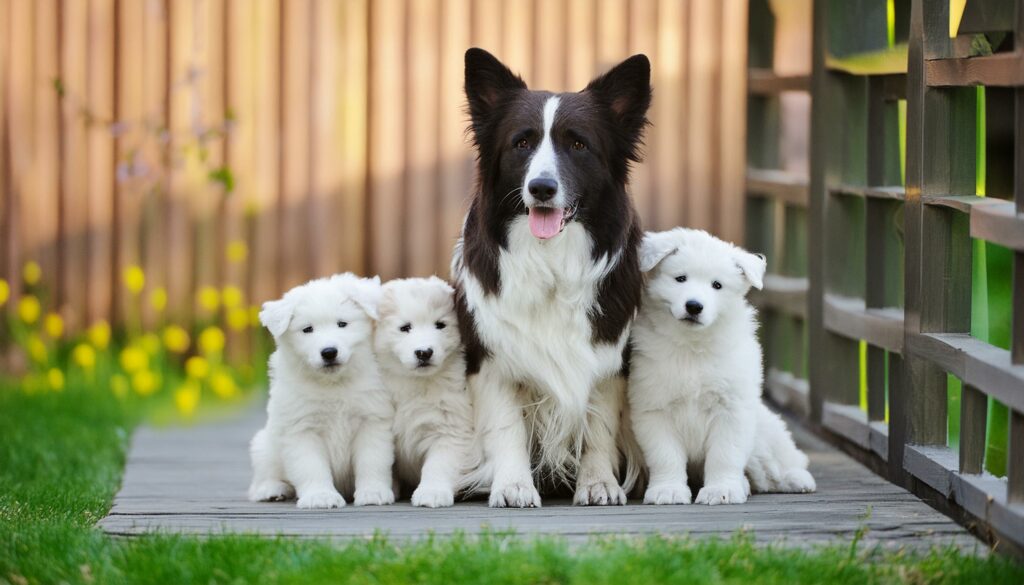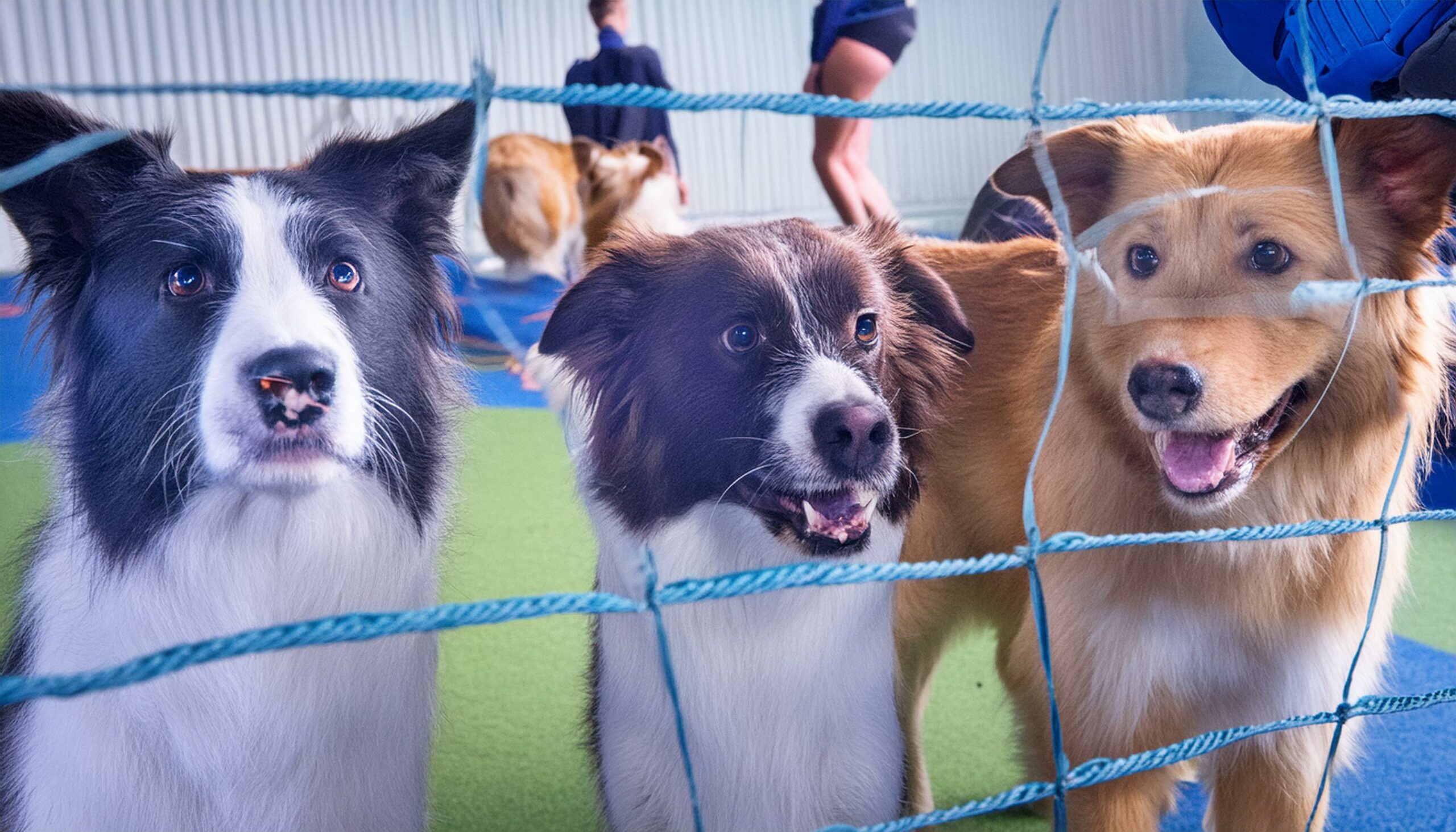Border Collies, originating from the border regions between Scotland and England, are celebrated for their remarkable intelligence and unparalleled herding abilities. While they excel in various tasks and activities, their unique combination of traits can present challenges for owners.
The Intelligence of Border Collies
Border Collies are widely regarded as one of the most intelligent dog breeds. Their ability to understand complex commands and problem-solve sets them apart. However, this high level of intelligence comes with a caveat. Border Collies require constant mental stimulation to prevent boredom and behavioral issues.
Their innate intelligence allows them to learn quickly and excel in various activities, including obedience training, agility trials, and herding competitions. However, without sufficient mental stimulation, Border Collies may exhibit undesirable behaviors such as excessive barking, destructive chewing, or attempting to escape.
High Energy Levels
Border Collies have boundless energy levels and thrive on physical exercise and mental challenges. This high energy level is a reflection of their herding heritage, as they were bred to work tirelessly for long hours in the fields.
Constant need for activity is essential for Border Collies to remain physically and mentally healthy. Daily walks, runs, and engaging play sessions are essential for channeling their energy constructively and keeping them content. Neglecting their exercise needs can lead to frustration and boredom, which may manifest in destructive behaviors.
Independent Nature

Border Collies possess a strong sense of independence, which can sometimes translate into stubbornness during training sessions. While their independence is a testament to their intelligence and problem-solving abilities, it can present challenges for owners, particularly during obedience training.
Their independent streaks can pose challenges during obedience training, requiring patience, consistency, and positive reinforcement techniques. Harsh training methods or punishment-based approaches are not effective and can damage the bond between the owner and their Border Collie.
Strong Herding Instincts
Bred for generations to herd livestock, Border Collies retain a powerful herding instinct that manifests in various ways. In a domestic setting, this herding instinct may lead to behaviors such as nipping at heels, chasing small children or animals, and herding household members.
While this behavior is innate and natural for Border Collies, it can be challenging for owners to manage, especially in households with young children or other pets. Proper training and socialization are essential to redirect this herding instinct into more appropriate channels and prevent accidents or injuries.
Sensitivity and Reactivity
Border Collies are highly sensitive to their environment, making them prone to react strongly to loud noises, sudden movements, or changes in routine. Their heightened sensitivity can be both a blessing and a curse, as it allows them to pick up on subtle cues but also makes them susceptible to anxiety and stress.
Dealing with reactive behavior requires patience, understanding, and gradual desensitization. Exposing Border Collies to different stimuli in a controlled and positive manner can help reduce their reactivity over time. Creating a calm and predictable environment is essential to help them feel safe and secure.
Socialization Challenges
Early socialization is crucial for Border Collies to develop appropriate social skills and reduce the likelihood of fearfulness or aggression towards strangers and other animals. Without proper socialization, Border Collies may display territorial behavior or become anxious or aggressive in unfamiliar situations.
Owners must expose their Border Collies to a variety of people, animals, and environments from a young age to help them become well-adjusted and confident adults. Positive experiences during the socialization process are vital for shaping their behavior and temperament.
Separation Anxiety

Border Collies form strong bonds with their owners and can experience severe anxiety when left alone for extended periods. Separation anxiety is a common issue among Border Collies, leading to behaviors such as destructive chewing, excessive barking, or attempts to escape.
Coping strategies for separation anxiety include gradual desensitization, providing comforting stimuli such as toys or blankets, and ensuring sufficient exercise and mental stimulation. Creating a predictable routine and practicing short departures can help Border Collies learn to cope with being alone.
Boredom and Destructive Behavior
When left unstimulated, Border Collies may resort to destructive behaviors such as chewing, digging, or excessive barking to alleviate boredom. Providing adequate mental and physical stimulation is essential to prevent boredom-induced destructive behaviors.
Enriching their environment with interactive toys, puzzle feeders, and regular training sessions can help keep Border Collies mentally engaged and satisfied. Engaging in activities such as agility training, obedience trials, or herding competitions can fulfill their natural instincts and provide them with a sense of purpose.
Training Challenges
Border Collies respond best to positive reinforcement techniques, such as rewards and praise, rather than harsh discipline. Consistency in training methods and patience are essential when working with Border Collies due to their strong will and intelligence.
Finding the right balance between providing structure and freedom is key to successful training. Border Collies thrive on mental challenges and enjoy learning new tasks and tricks, making training sessions an enjoyable experience for both the owner and the dog.
Health Concerns
Like all breeds, Border Collies are prone to certain genetic health issues, including hip dysplasia, epilepsy, and progressive retinal atrophy. Regular veterinary check-ups and a healthy lifestyle can help mitigate these risks.
Owners should be vigilant about monitoring their Border Collies for any signs of illness or discomfort and seek prompt veterinary care when necessary. Maintaining a healthy diet, regular exercise, and preventive medications such as flea and tick preventatives are essential for their overall well-being.
Finding the Right Balance
Finding the right balance between meeting the needs of Border Collies and managing their challenges is essential for a harmonious relationship. Providing adequate physical exercise, mental stimulation, and emotional support is key to keeping Border Collies happy and healthy.
Understanding their unique traits and behaviors can help owners anticipate their needs and address any issues that may arise. With patience, dedication, and love, owning a Border Collie can be a rewarding and fulfilling experience.
Tips for Border Collie Owners
- Create a stimulating environment: Enrich your Border Collie’s environment with interactive toys, puzzles, and regular training sessions to keep their minds engaged.
- Establish a routine: Establish a consistent daily routine for feeding, exercise, and play to provide structure and stability for your Border Collie.
- Practice patience: Border Collies may test your patience at times, but remain calm and consistent in your training approach.
- Provide ample exercise: Ensure your Border Collie receives enough physical exercise each day to prevent boredom and destructive behaviors.
- Seek professional help if needed: If you’re struggling with training or behavior issues, don’t hesitate to seek guidance from a professional dog trainer or behaviorist.
In conclusion, Border Collies are undoubtedly remarkable dogs, but their unique combination of traits can make them challenging to own. By understanding their needs and providing appropriate care, training, and stimulation, Border Collie owners can enjoy a fulfilling and rewarding relationship with their furry companions.
